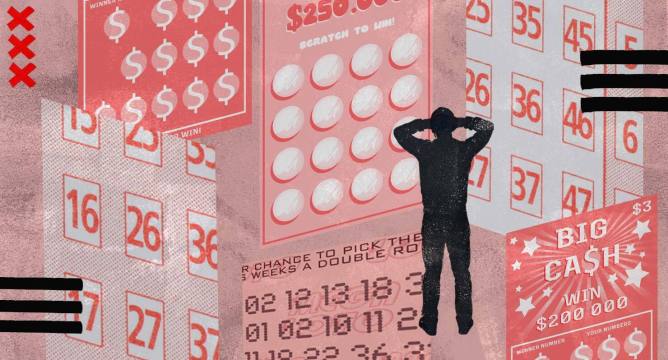This article is an instalment in a new series, Punted, on the government’s failure to reform gambling advertising.
Bill Shorten said the quiet part out loud last week on Q+A:
We got ourselves in this wicked situation where now some of the free-to-air media need gambling ad revenue … in order just to stay afloat … free-to-air media is in diabolical trouble.
That’s the discussion we’re not having.
He needs to read Crikey more closely.
“This is not a story about gambling. It’s about the media,” wrote Bernard Keane as he kicked off our recent series Punted. “If there’s intense division among the gambling industry, there’s none within Australia’s corporate media: they all oppose a ban on broadcast gambling advertising — though they would be perfectly happy with a ban on social media advertising, thank you.”
None of this is about the efficacy of a full ban on gambling advertising, or the fact that it’s too complex to pull off. It’s not even about the gambling companies (some support a ban, some are indifferent).
The media needs the money.
We are, as an industry, collectively skint. As for funding expensive, time-consuming public service journalism? Forget it.
We’re not exactly rolling in it, but Crikey has never taken gambling money. It’s not loose change we’re rejecting, either. Gambling brands spend a lot. And mostly pay full price.
We asked our ad sales team to do a rough, back-of-the-envelope calculation. Stay with us here: based on the available ad impressions, and imagining we sold 10% of them, (and factor in hiring a seller devoted to the job), it could conceivably shake out at a net margin contribution of around $300,000 – enough to really sink our teeth into some stories.
But we don’t go after that kind of money, we don’t take it when it’s offered and we’re not about to start. Why?
For all the reasons that are driving the people who know what they’re talking about to push the government for a full ban on gambling advertising. We don’t want anything to do with the industry, no matter how many investigations its money would fund.
Instead, we want to talk about how to fund public interest journalism.
Even if they get to keep their pocket money this time round, this fight is yet another reminder that corporate media will continue to die a slow death. Squibbing on gambling advertising reform is just kicking the can down the road.
As dirty as the concept might be to some, the government needs to find the guts to intervene in some way by expanding the government funding model to all public interest journalism outlets.
The media bargaining code was plainly not the answer to a long-term funding model for public interest journalism. It relied on trusting big tech to come to the table long term and trusting the big media outlets to divert the funds to actual journalism and preserving journalists’ jobs (take a look at our news jobs tracker to see how that’s panning out.)
So while the big players are still bleating for their money, Shorten should check his notes — there’s very much a discussion about how broke (and broken) the media business model is, and how government can help fund crucial journalism. There are more than a few ideas currently being floated, including this latest concept from the Australia Institute, the thinking outlined here by Benjamin Clark, the Greens’ tech tax, not to mention our own publisher Private Media’s push to think beyond the inherently flawed media bargaining code (try throwing more money at the public broadcaster for starters).
If the government ignores a growing backbench revolt and goes half-arsed on gambling reform, it deserves to be howled down. Simultaneously, it needs its feet held to the fire on funding journalism. Because things don’t get much more desperate than pocketing problem gamblers’ money to prop up a business model. Time for some new ideas.
Anyone affected by problem gambling can get immediate assistance by calling the National Gambling Helpline on 1800 858 858 for free, professional and confidential support 24 hours a day, seven days a week.
Should media organisations take gambling ad money? Let us know your thoughts by writing to [email protected]. Please include your full name to be considered for publication. We reserve the right to edit for length and clarity.
